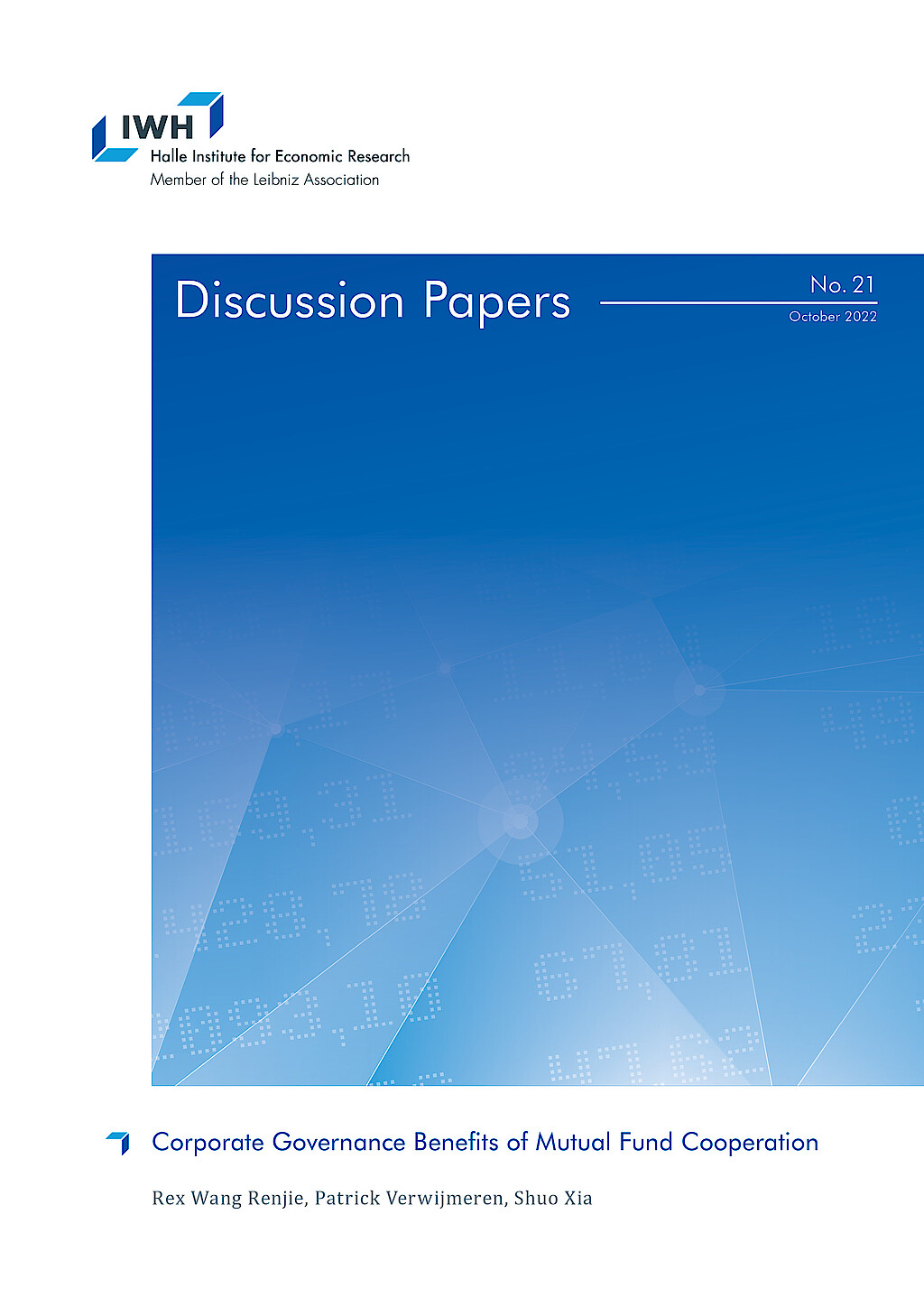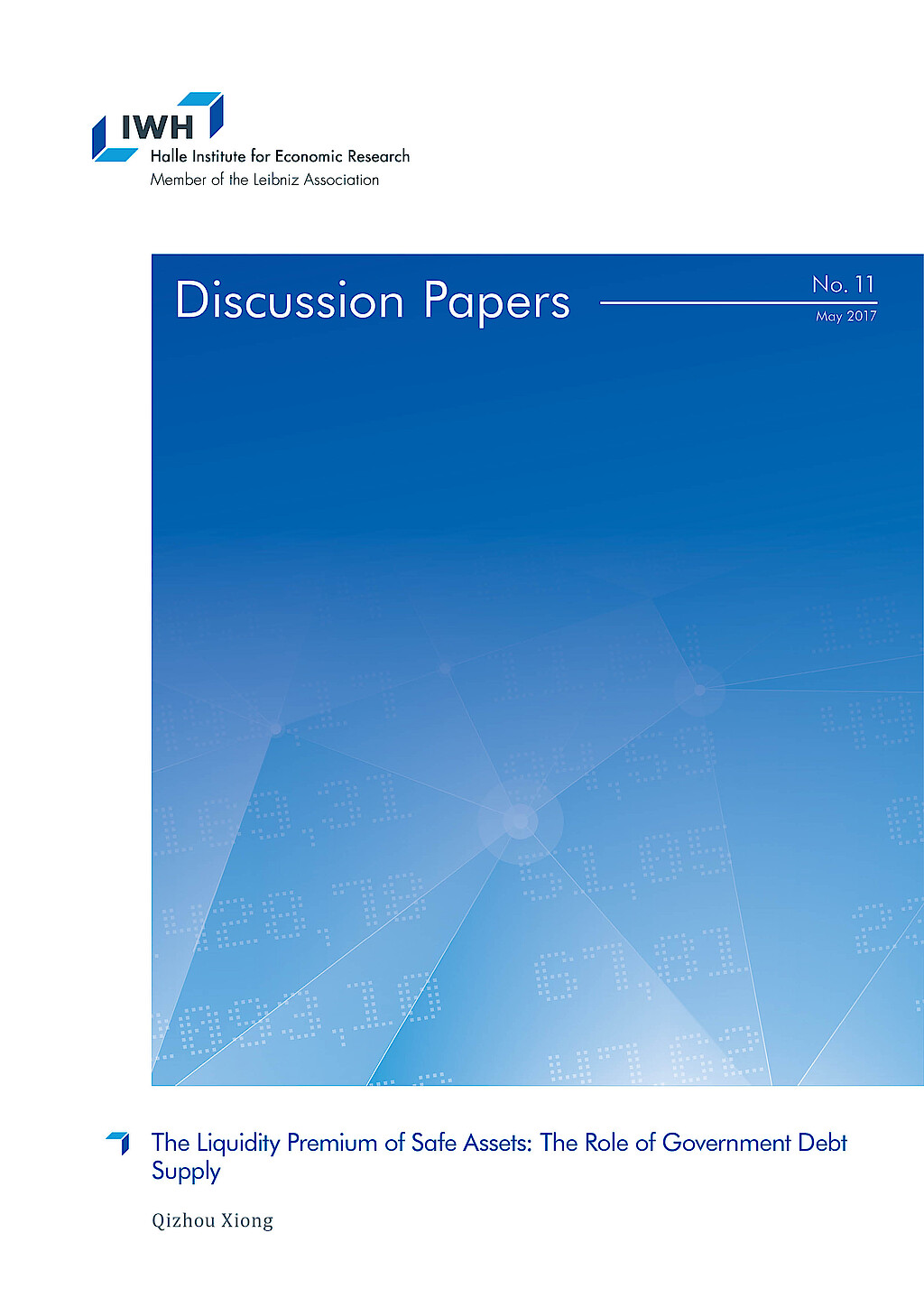Governance und Finanzierung
Diese Forschungsgruppe untersucht traditionelle und moderne Ansichten über Corporate Governance auf den Finanzmärkten. Sie trägt dazu bei, die Wirksamkeit verschiedener Governance-Mechanismen bei der Auswahl von Talenten, der Schaffung von Anreizen und der Bindung an das Unternehmen zu verstehen. Die Gruppe untersucht auch, wie verschiedene Stakeholder die Corporate Governance beeinflussen.
Forschungscluster
Finanzresilienz und RegulierungIhr Kontakt

- Abteilung Finanzmärkte
Referierte Publikationen

Investor Relations and IPO Performance
in: Review of Accounting Studies, Nr. 2, 2020
Abstract
We analyze the value of investor relations (IR) strategies to IPO firms. We find that firms that are less visible and have inexperienced management tend to hire IR consultants prior to the issue date. IR consultants help create positive news coverage before an IPO, as reflected in a more optimistic tone of published media. Their presence is associated with higher underpricing at the IPO date but with lower long-run returns. IR-backed IPOs also exhibit disproportionately higher insider-related agency problems, as IR-induced higher underpricing tends to occur primarily in IPOs where underwriter and venture capitalist agency conflicts are more severe. These findings suggest that the IR programs of IPO firm are mostly short-term oriented and facilitate the ulterior motives of some insiders (underwriters and venture capitalists) targeting higher first-day returns.

Tornado Activity, House Prices, and Stock Returns
in: North American Journal of Economics and Finance, April 2020
Abstract
In this paper we investigate the effects of tornado activity on house prices and stock returns in the US. First, using geo-referenced and metropolitan statistical area (MSA)-level data, we find tornado activity to be responsible for a significant drop in house prices. Spillover tornado effects between adjacent MSAs are also detected. Furthermore, our granular analysis provides evidence of tornadoes having a negative impact on stock returns. However, only two sectors seem to contribute to such a negative effect (i.e., consumer discretionary and telecommunications). In a macro-analysis, which relies on aggregate data for the South, West, Midwest and Northeast US regions, we then show that tornado activity generates a significant drop in house prices only in the South and Midwest. In these regions, tornadoes are also responsible for a drop in income. Tornado activity is finally found to positively (negatively) affect stock returns in the Midwest (South). If different sectors are examined, a more heterogeneous picture emerges.

Managerial Effect or Firm Effect: Evidence from the Private Debt Market
in: Financial Review, Nr. 1, 2020
Abstract
This paper provides evidence that the managerial effect is a key determinant of firms’ cost of capital, in the context of private debt contracting. Applying the novel empirical method developed by an earlier study to a large sample that tracks the job movement of top managers, we find that the managerial effect is a critical and significant factor that explains a large part of the variation in loan contract terms more accurately than firm fixed effects. Additional evidence shows that banks “follow” managers when they change jobs and offer loan contracts with preferential terms to their new firms.

Managerial Ability and Value Relevance of Earnings
in: China Accounting and Finance Review, Nr. 4, 2019
Abstract
We examine how management ability affects the extent to which capital markets rely on earnings to value equity. Using a measure of ability that captures a management team’s capacity for generating revenues with a given level of resources compared to other industry peers, we find a strong positive association between managerial ability and the value relevance of earnings. Additional tests show that our results are robust to controlling for earnings attributes and investment efficiency. We use propensity score matching and the 2SLS instrumental variable approach to deal with the issue of endogeneity. For further identification, we examine CEO turnover and find that newly hired CEOs with better managerial abilities than the replaced CEOs increase the value relevance of earnings. We identify weak corporate governance and product market power as the two important channels through which superior management practices play an important role in the corporate decision-making process that positively influence the value relevance of earnings. Overall, our findings suggest that better managers make accounting information significantly more relevant in the market valuation of equity.

College Choice, Selection, and Allocation Mechanisms: A Structural Empirical Analysis
in: Quantitative Economics, Nr. 3, 2019
Abstract
We use rich microeconomic data on performance and choices of students at college entry to analyze interactions between the selection mechanism, eliciting college preferences through exams, and the allocation mechanism. We set up a framework in which success probabilities and student preferences are shown to be identified from data on their choices and their exam grades under exclusion restrictions and support conditions. The counterfactuals we consider balance the severity of congestion and the quality of the match between schools and students. Moving to deferred acceptance or inverting the timing of choices and exams are shown to increase welfare. Redistribution among students and among schools is also sizeable in all counterfactual experiments.
Arbeitspapiere

Corporate Governance Benefits of Mutual Fund Cooperation
in: IWH Discussion Papers, Nr. 21, 2022
Abstract
Mutual fund families increasingly hold bonds and stocks from the same firm. We study the implications of such dual holdings for corporate governance and firm decision-making. We present evidence that dual ownership allows financially distressed firms to increase investments and to refinance by issuing bonds with lower yields and fewer restrictive covenants. As such, dual ownership reduces shareholder-creditor conflicts, especially when families encourage cooperation among their managers. Overall, our results suggest that mutual fund families internalize the shareholder-creditor agency conflicts of their portfolio companies, highlighting the positive governance externalities of intra-family cooperation.

Why Do Workers at Larger Firms Outperform?
in: Working Paper, 2020
Abstract
Workers at larger firms outperform on average. For example, equity analysts working for more reputable brokerage firms produce more accurate earnings forecasts. Analysts employed by the highest ranked brokerages are about 6% more accurate than those employed by the lowest ranked brokerages, which is equivalent to an advantage of 17.5 years of more experience. This outperformance is driven by two significant effects: more reputable firms provide more resources that improve analysts' forecasting ability (influence), while more reputable firms also attract more talented candidates (sorting). We estimate a two-sided matching model to disentangle these two effects. We find that the direct influence effect accounts for 73% of the total impact while the sorting effect accounts for the remaining 27%.

Lame-Duck CEOs
in: SSRN Working Papers, 2018
Abstract
We examine the relationship between protracted CEO successions and stock returns. In protracted successions, an incumbent CEO announces his or her resignation without a known successor, so the incumbent CEO becomes a “lame duck.” We find that 31% of CEO successions from 2005 to 2014 in the S&P 1500 are protracted, during which the incumbent CEO is a lame duck for an average period of about 6 months. During the reign of lame duck CEOs, firms generate an annual four-factor alpha of 11% and exhibit significant positive earnings surprises. Investors’ under-reaction to no news on new CEO information and underestimation of the positive effects of the tournament among the CEO candidates drive our results.

Selection Versus Incentives in Incentive Pay: Evidence from a Matching Model
in: SSRN Working Papers, 2018
Abstract
Higher incentive pay is associated with better firm performance. I introduce a model of CEO-firm matching to disentangle the two confounding effects that drive this result. On one hand, higher incentive pay directly induces more effort; on the other hand, higher incentive pay indirectly attracts more talented CEOs. I find both effects are essential to explain the result, with the selection effect accounting for 12.7% of the total effect. The relative importance of the selection effect is the largest in industries with high talent mobility and in more recent years.

The Liquidity Premium of Safe Assets: The Role of Government Debt Supply
in: IWH Discussion Papers, Nr. 11, 2017
Abstract
The persistent premium of government debt attributes to two main reasons: absolute nominal safety and liquidity. This paper employs two types of measures of government debt supply to disentangle the safety and liquidity part of the premium. The empirical evidence shows that, after controlling for the opportunity cost of money, the quantitative impact of total government debt-to-GDP ratio is still significant and negative, which is consistent with the theoretical predictions of the CAPM with utility surplus of holding convenience assets. The relative availability measure, the ratio of total government liability to all sector total liability, separates the liquidity premium from the safety premium and has a negative impact too. Both theoretical and empirical results suggest that the substitutability between government debt and private safe assets dictates the quantitative impact of the government debt supply.









